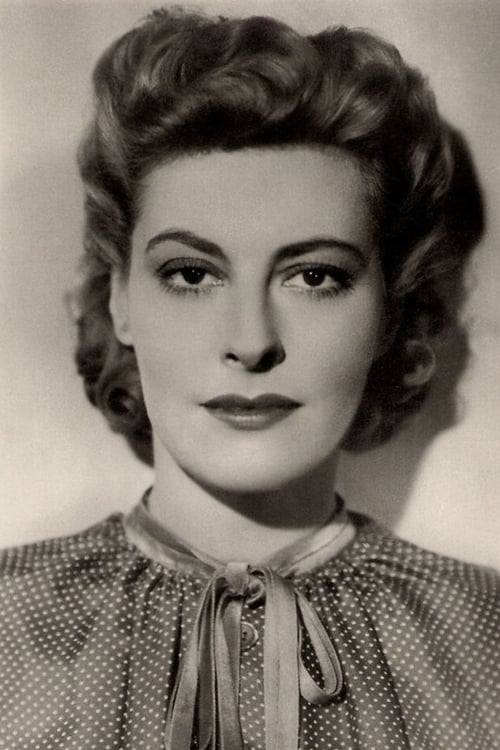
Marianne Hoppe
Рождение : 1909-04-26, Rostock, Germany
Смерть : 2002-10-23
История
Born in Rostock, Hoppe became a leading lady of stage and films in Germany. She was born into a wealthy landowning family and was initially privately educated on her father's private estate. Later she attended school in Berlin and in Weimar, where she began to attend theatre.[1]
Hoppe first performed at 17 as a member of Berlin's Deutsches Theater under director Max Reinhardt. In 1935 she was hired by the controversial German actor and Director of the Prussian State Theatre under the Third Reich, Gustav Gründgens. They were married from 1936-46, until their divorce. Speaking years after the marriage had ended Hoppe stated, "He was my love, but never my great love, that was work."[1]
One of the characters in the film Mephisto was reportedly based on her. Hoppe made no secret of her contacts with the Nazi elite in the 1930s/40s, including being invited to dinner by Hitler.[2] Her role in Der Schimmelreiter (The Rider of the White Horse, 1934) made her famous almost overnight, while her "Aryan" face made her a darling of the Nazi elite.[1] Later Hoppe would label this period of her life as "the black page in my golden book".[1]
During her time acting at the home of the Prussian State Theatre, the Schauspielhaus, Hoppe developed her analytical approach to acting, which she stated consisted in her "taking apart every sentence" and giving the use of language a brilliance. This method was to be associated with Hoppe throughout her working life.[1] In 1946 her only child, Benedikt Johann Percy Gründgens, was born.
Four years later after her divorce from Gründgens, Hoppe had a great success as Blanche Dubois in Tennessee Williams's A Streetcar Named Desire, and increasingly played avant-garde roles, written by authors such as Heiner Muller (Quartett, 1994) and Thomas Bernhard, who became her partner in private life as well. She became a favourite of the young and iconoclastic directors Claus Peymann, Robert Wilson and Frank Castorf.
Hoppe died in Siegsdorf, Bavaria, in 2002 from natural causes, aged 93. "German theater has lost its queen", said Claus Peymann of the Berliner Ensemble, whose theatre featured Hoppe's last performance, in Bertolt Brecht's Resistible Rise of Arturo Ui, in December 1997.[2] In one of her last interviews Hoppe stated, "I have a go at happiness every day. That takes discipline, a virtue every halfway decent actor should have."
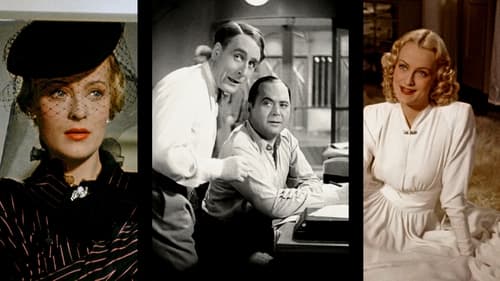
Various Roles (archive footage)
Film journalist and critic Rüdiger Suchsland examines German cinema from 1933, when the Nazis came into power, until 1945, when the Third Reich collapsed. (A sequel to From Caligari to Hitler, 2015.)

Werner Schroeter's lovely and touching portrait of the great German actress Marianne Hoppe, whose career spanned from the glory days of the Weimar era through the Nazi years to a postwar return to the stage in Shakespeare, Tennessee Williams, and experimental productions by Robert Wilson and Heiner Müller.

Frau Weinstein

Hedwig Schuster
Heldenplatz centers on a Jewish family in the Vienna of 1988. The main character, Professor Josef Schuster, a mathematician, who can no longer stand the anti-Semitism he still finds in Austria 50 years after the Anschluss – commits suicide by jumping out of his apartment window onto the historic Heldenplatz before the play begins.

Gräfin Hohenlohe

Thea Ammer
David flies from Tel Aviv to Munich to study. Through a gay friend he meets Thea, the older quirky landlady of a gay pub. He becomes friends with Thea. She recognizes through a ring David wears that he is her grandson.

Herself
A group of aging friends, foes, and former colleagues gather to celebrate and deride the life of 80-year-old actress Francesca on her birthday.

Marianne

Elisabeth v. Ardenne

Mutter
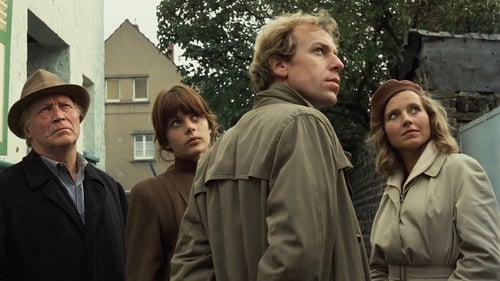
Mother
Начинающий писатель отправляется в путь, продолжая тем самым традицию великих романтиков и модных битников. Но после войны страна изменилась: она не похожа ни на прежнюю Германию, ни на современную Америку. Молодые ведут беседы о поэзии, пока старики тихо лезут в петлю. А странствующие акробаты уже не служат символом неприкаянности искусства. Теперь это парочка из нимфетки и недобитого наци. Все хотят вернуться к нормальной жизни, но в итоге сеют одиночество.

Tante Thea

Präsidentin

Mrs. Bryant

Herzogin von Gloster

Self

Selma Selig

Madame Hunter

Die Zeit

Augusta
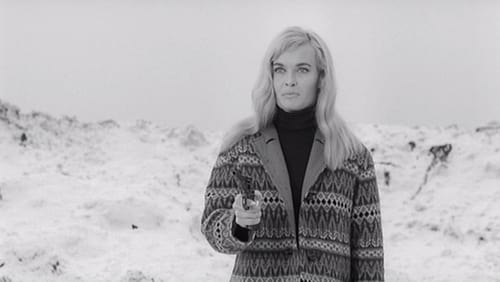
Elsa Grohmann
Экранизация романа Агаты Кристи "Десять негритят". В фильме снимался молодой Марио Адорф в роли слуги и Кристофер Ли "в роли" голоса мистера Оуэна. Действие происходит в 60-ые годы 20 века в Австрийских Альпах. Название фильма изменено на "Десять маленьких индейцев" из соображений политкорректности. По сути, фильм является ремейком голливудской экранизации 1945г., с таким же хеппи-эндом.
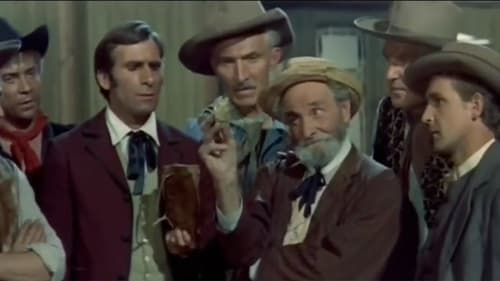
Mrs. Brendel
Всего несколько золотых самородков и карта старого индейца послужили началом «золотой лихорадки» в штате Арканзас. В центре сюжета оказываются двое друзей-ковбоев, которые пытаются найти убийцу отца одного из них. Они прибывают в небольшой городок Марбл Сити, где им предстоит столкнуться с целой бандой, которая захватила власть в свои руки. Смогут ли они выйти победителем из противостояния, в котором силы явно несопоставимы?..

Edna Selby

Patricia Taylor

Iokasta
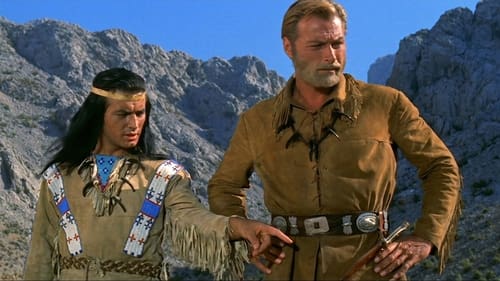
Mrs. Butler
Легендарные Шаттерхэнд (Разящая Рука) и его друг Виннету, последний вождь апачей, идут по следу бандитов, которые ограбили почтовую карету и убили пассажира. К ним присоединяется Фред Энгель - сын убитого. По ходу расследования оказалось, что убийство произошло из-за карты на которой обозначено место нахождения сокровищ серебряного озера. Виннету, благородного сына вождя мескалерских апачей, знали все индейцы штатов Техас и Нью-Мексико. Друг и защитник всех бесправных и обездоленных, Виннету был непримиримым врагом тех, кто чинил беззаконие и произвол. Рассказ о нем звучит в наши дни как легенда, но сто лет назад все это было в действительности. Вместе мы пересечем скалистые горы, будем скакать в бескрайних просторах прерий в поисках сказочных сокровищ

Henriette Flamm

Generalin
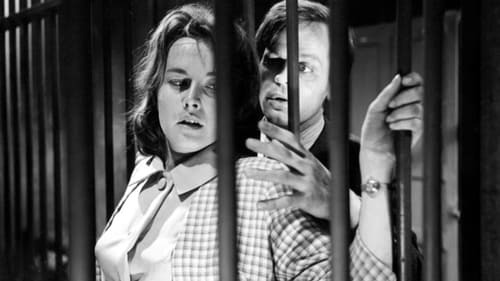
Mary Pinder, verw. Moron
Strange fortune hunters are behind a girl's murder in this Edgar Wallace tale.
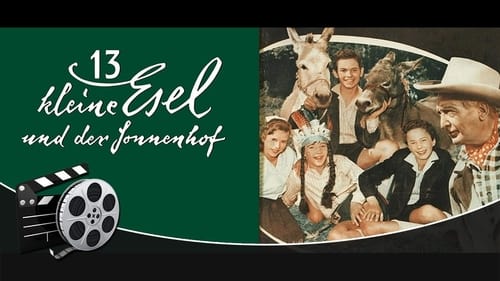
Martha Krapp
Йозеф Крапп всегда в душе был путешественником, недаром односельчане еще в молодости прозвали его "Донкихотом". Поэтому нет ничего удивительного, что однажды он решил оправдать это прозвище и попросту ушел искать приключения. Но у некоторых дорог есть удивительное свойство поворачивать судьбу бродяги. Вот поэтому по прошествии нескольких лет, ведомый какой-то звездой, наш герой вдруг вернулся в родные места. И здесь его ожидало удивительное открытие. Его супруга Марта, очень религиозная женщина, за время его отсутствия организовала в их доме приют для тринадцати детей.

Helga Dargatter

die Frau
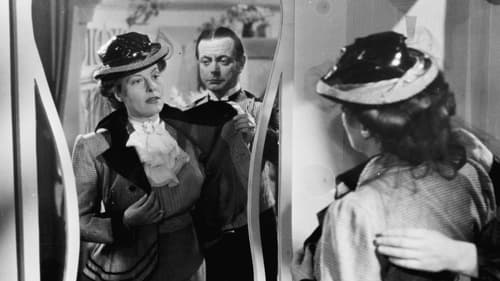
Irene Scholz
A man's life breaks down in pursuit of material success.

Johanna Stegen alias Luscha

Lenore Carius

Julia Bach
The actress Julia Bach is married to the famous director, Professor Paulus Allmann; however, no one is to know about the marriage. Julia doesn't want a career simply because she has a famous spouse. For that reason, Paulus always has to go on his concert tours alone. It's no wonder then, that he soon starts to feel neglected. These feelings of neglect are encouraged by his ex-wife Hedi, who's always hanging around. When Paulus one day forgets his wife's birthday, she goes on the rampage in the presence of guests. Wounded, Paulus leaves their home. Julia thinks there's only one way to save their marriage: for one year -- until her next birthday -- they are not to see one another. In that period of time, it should be abundantly clear whether they belong together or not.
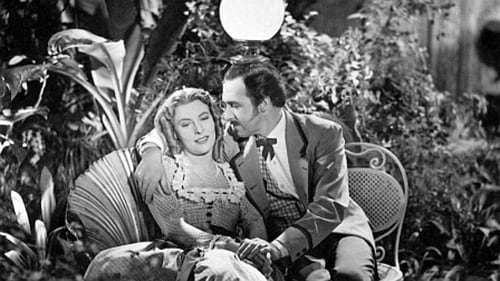
Madeleine
A grieving husband tries to uncover the truth behind his wife's suicide, leading him to discover a tragic tale of infidelity and redemption.

Felicitas Iversen

Franziska Tiemann
The relationship between Franziska and her partner Michael, a globetrotting photojournalist, remains strained due to their constant separation, until tragedy strikes, forcing Michael to come home and to make a decision about their future.

Renate Brinkmann

Effi Briest
Theodor Fontane's novel about a young girl who as a teenager marries a stiff bureaucrat, has a love affair out of boredom and loneliness and has to suffer the consequences years later should be well known.

Gabriele Brodersen
Gabriele Bordersen, a woman from a good home, wants to see what real life is like among the common folk. With her stewardess Fanny Flint and the tour guide Simikry, she goes off to visit a sailors' bar. Fanny and Gabriele change clothes, which allows the stewardess to introduce herself as a fine lady. When Gabriele asks Fanny to leave with her, Fanny begs her to give her an hour more out of fear of embarrassment. Gabriele, however, is thrown out of the bar by the owner without money and papers; is picked up by the cops; and suffers a nervous breakdown, leading to her being sent to a hospital. No one believes in the slightest that she's really Gabriele Brodersen.

Mabel Atkinson
Mabel is a successful pilot who hates sensational media, but falls in love with Jack, a womanizer journalist with conservative views on gender. When the two of them get married, they make a deal: Mabel will cease to fly as long as Jack doesn't interview any more women. But how long can they keep their pact?

Inken Peters
Der Herrscher (The Sovereign) was based on Before Sunset, a play by Gerhart Hauptmann. The great Emil Jannings stars as Mathias Clausen, a self-made businessman who is forced to do a great deal of soul-searching when his wife unexpectedly dies. Determining to start life anew, he falls in love with his secretary Inken (Marianne Hoppe) and impulsively takes a vacation to Italy. Clausen's selfish grown children, not wishing to share their father's affections -- nor his money -- with his new wife-to-be, go to court demanding that Clausen be declared mentally incompetent. Upon finding this out, Clausen flies into a rage, leaving the audience to wonder whether or not he really as gone off his trolley. Der Herrscher was directed by Veit Harlan, more famous (or notorious) for his viciously anti-Semitic Jud Suess (1940).

Hester
Sylvia, the daughter of the pastor Kelvil, is lectrice to Lady Patricia and gets to know the young Lord Harford. They love one another, but their class differences forbid marriage. There's a sharp argument with the father, who afterwards wants to send the young lord abroad. Then Sylvia is offered money to disappear, unaware that she's already pregnant. 18 years later: Sylvia raised her son on her own as best she could. He is now known as Lord Harford, who, besides having the title Lord Illingworth, also has inherited his father's total estate and has now returned from India. Unaware of their identities, the father and son get to know one another; get into a fight; and the young man challenges the father to a duel. In order to prevent that from happening, the mother must now tell each of them the truth about their identities. The film is based on the theatre piece of the same name by Oscar Wilde.

Marie

Regine Kessler

Käthe Liebenow

Maria Schönborn, Verkäuferin im Blumenhaus Floris

Hella Bergson

Johanna Luerssen
Germany under Napoleon. Johanna is travelling by stagecoach when one of its occupants, Major Korfes, is arrested by the French militia. Before capture, he gives Johanna a mysterious letter. To solve the mystery, she joins the German corps as the “Black Hunter”. A fantastic breeches role for the lesbian Marianne Hoppe, who two years later, married her gay film partner Gustav Gründgens to prevent persecution by the Nazis.

Anna

Elke Volkerts
Freely adapted from Theodor Storm's novella of the same name.

Ursula Diewen

Josefa
In the year 1810, the Tyrol is suffering under French occupation. A servant, who believes himself oppressed and disenfranchised by the peasants, dreams of being allowed to play Christ in the yearly Passion Play. Instead, he is forced to play Judas and soon the lines of reality blur: he betrays the location of Andreas Hofer, hidden by the farmers, breaks under the weight of his guilt and suffers Judas' fate.













